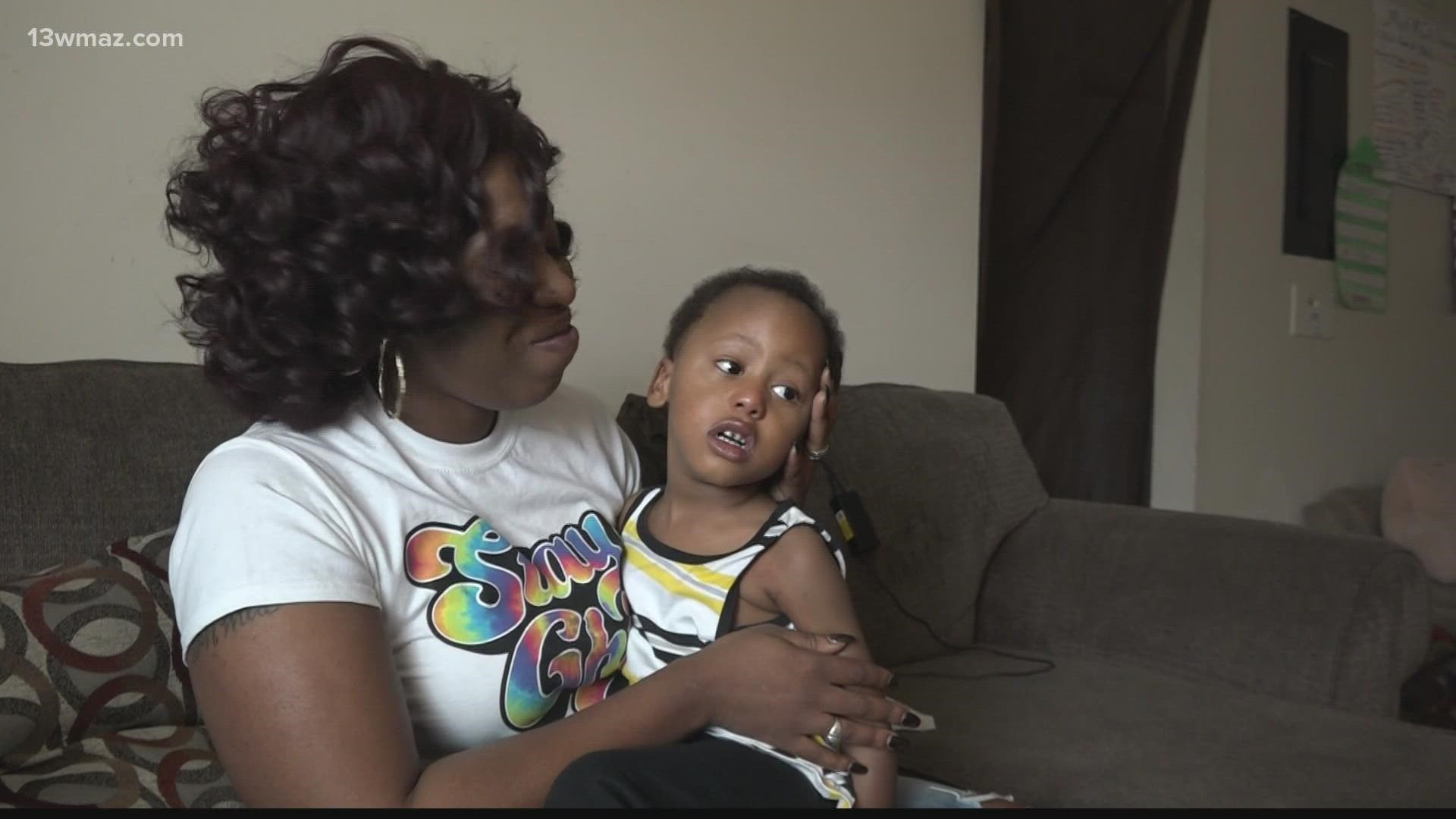FORT VALLEY, Ga. — Jh'Mael (Mael) Jackson, 3, has a rare genetic disorder called infantile neuroaxonal dystrophy (INAD).
INAD is a "rare inherited neurological disorder," that affects the axons, according to the National Institute of Neurological Disorders and Stroke (NINDS). They carry messages from the brain to other parts of the body, and causes progressive loss of vision, muscular control, and mental skills.
When Mael was born, he did not have any symptoms. His mother, Sherthea Jackson, knew something was wrong just before his first birthday.
"He started regressing, like I noticed that he would slump over whenever I would sit him up as though he was tired," Jackson said.
Jackson said doctors in Fort Valley didn't take her concerns seriously. Currently, Mael can't walk and uses a mobile chair and is fed soft foods.
"They brushed me off, told me I was overreacting," Jackson said.
Jackson noticed his eyes were going cross-eyed. She wasn't able to get an appointment because of the pandemic. For five months, Jackson had to wait.
Jackson asked doctors for a genetic test. All the tests came back normal. After a second genetic test, she started to understand what was happening to him. Even after the results, she knew Mael's life would not be the same.
"There's no cure or treatment," Jackson said.
However. Jackson is just one of about 150 children with this rare disorder.
Leena Panwala's 7-year-old daughter Ariya also has the disorder. She was diagnosed in September of 2016.
Panwala is the founder of the IADCure Foundation. She says funding for research will lead us to treatments.
"We are actively, aggressively pursuing as many sort of treatment paths as possible to really help these children," Panwala said.
One of Jackson's sons started a candle business to raise money for Mael. Jackson says he started it on my own and puts the money in an account in Mael's name.
Jackson says she is glad she kept going to find Mael the help that he needs.
"If you think something is wrong with your child, take your child to the doctor. If the doctor ignores you, go to another doctor," Jackson said.
You can find more information about INAD and how to donate on their website.

